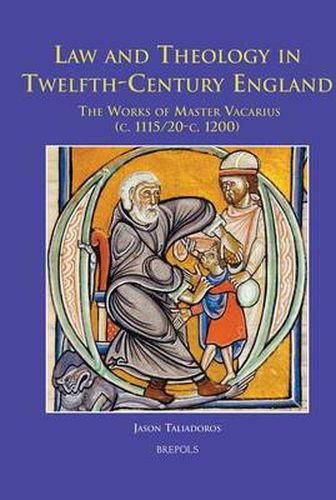Readings Newsletter
Become a Readings Member to make your shopping experience even easier.
Sign in or sign up for free!
You’re not far away from qualifying for FREE standard shipping within Australia
You’ve qualified for FREE standard shipping within Australia
The cart is loading…






This book explores the legal and theological thought of Master Vacarius (c.1115/20 - c.1200), the renowned twelfth-century jurist. It focuses on this Italian master’s four works, composed in the second half of the twelfth century, which deal with the resolution of conflict in law and theology. Vacarius is a paradox for scholars. They have found it difficult to reconcile his role as a legal teacher, notably through his textbook the Liber pauperum (‘Book of the Poor’), which established a school of Roman law at Oxford, with his ‘extra-legal’ works on marriage, Christology and heretical theology. This study accounts for this paradox by exploring these three extra-legal treatises, composed in the 1160s and 1170s, in light of Vacarius’ legal textbook. The author argues that Vacarius applies the legal method of the ius commune (European common law) to theological and sacramental debates. In this way, Vacarius represents a trend in medieval intellectual history, particular to the twelfth-century renaissance, which has been little appreciated to date - the hermeneutic of the ‘lawyer-theologian’.
$9.00 standard shipping within Australia
FREE standard shipping within Australia for orders over $100.00
Express & International shipping calculated at checkout
This book explores the legal and theological thought of Master Vacarius (c.1115/20 - c.1200), the renowned twelfth-century jurist. It focuses on this Italian master’s four works, composed in the second half of the twelfth century, which deal with the resolution of conflict in law and theology. Vacarius is a paradox for scholars. They have found it difficult to reconcile his role as a legal teacher, notably through his textbook the Liber pauperum (‘Book of the Poor’), which established a school of Roman law at Oxford, with his ‘extra-legal’ works on marriage, Christology and heretical theology. This study accounts for this paradox by exploring these three extra-legal treatises, composed in the 1160s and 1170s, in light of Vacarius’ legal textbook. The author argues that Vacarius applies the legal method of the ius commune (European common law) to theological and sacramental debates. In this way, Vacarius represents a trend in medieval intellectual history, particular to the twelfth-century renaissance, which has been little appreciated to date - the hermeneutic of the ‘lawyer-theologian’.